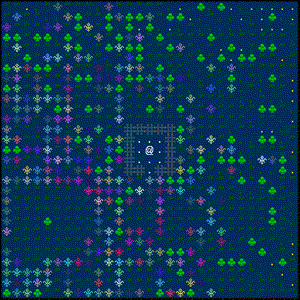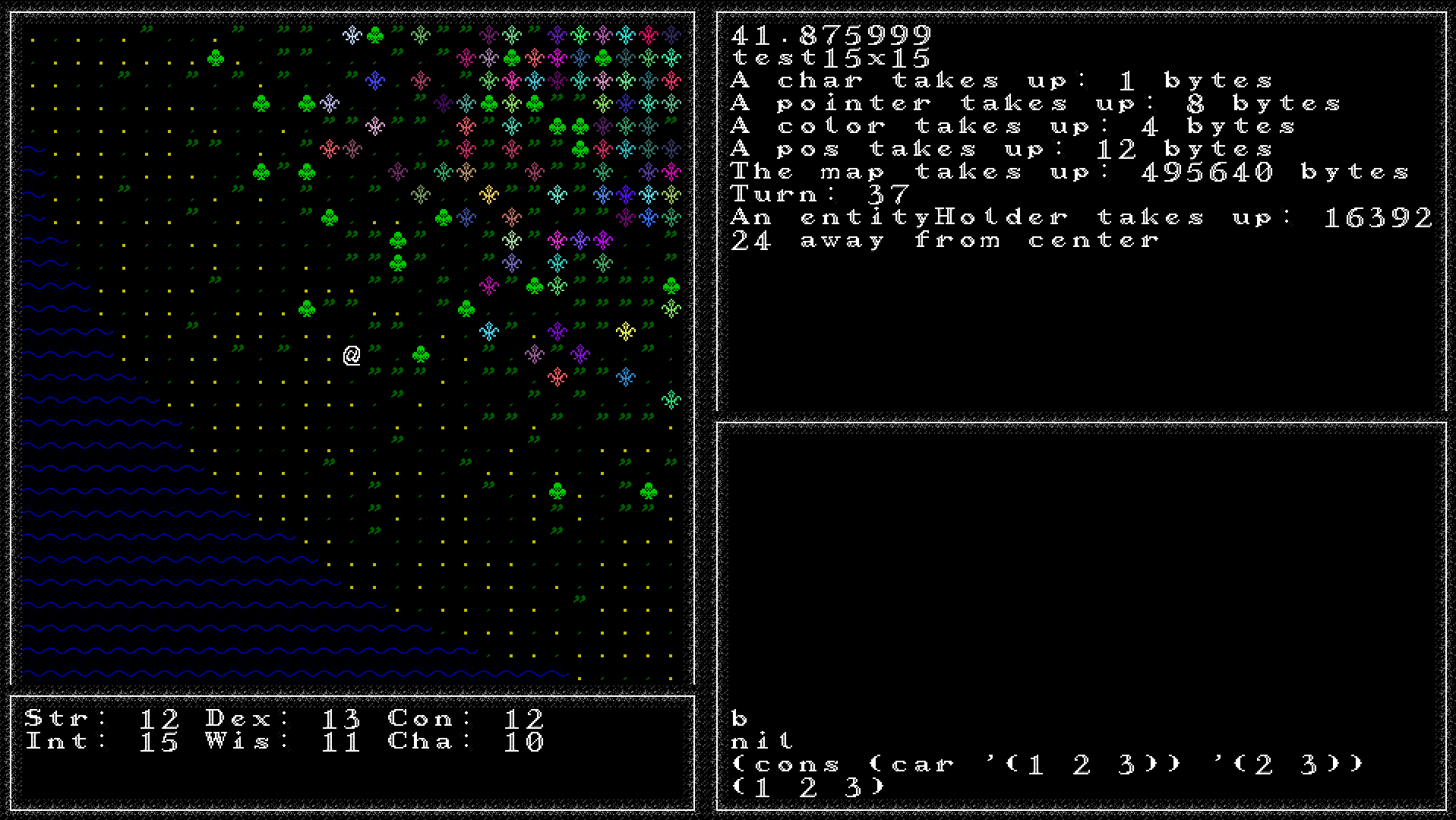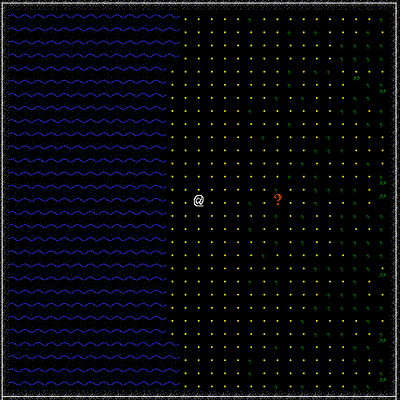
You're a wizard. You sing to the world, and it does what you say- if not always what you mean.
But you've taken a bump to the head and forgotten how magic works. Not to mention, you've lost all your glyphs of magic! Find them again, and figure out what the hell (a (a (_ 0))) means and why it boils you from the inside out, and get the hell off this island!
This is a simple little roguelike where magic is giving expressions to a strange and unhelpful LISP virtual machine. Every keyword is one-letter, and is interpreted as either an element ('heat', 'entropy', 'light','time','life'...), a function applying to the world, or a function applying to different functions (metamagic!) based on the context.
Features a basic heat simulation, so you can be burned by the backwash from a poorly-aimed spell! The gif is what an absurdly overpowered 'add heat to the tile next to me' spell looks like.






